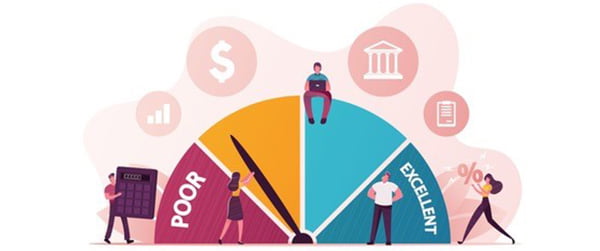Let’s Boost Your Score

There’s a virtual credit file with your name on it. When it comes time to apply for your mortgage, everything in this file and how you managed credit use until now, will determine if you will achieve financing, how much you can borrow, and at what rate. Well, that sounds a little intimidating.
The good news is that you are entirely in control of your credit score. Even if your past credit history has been a bit bumpy, there are steps you can take to increase your score: showing lenders that you are an acceptable risk and worthy of their best rates. Here are a few essential tips:
Be mindful – Pay your bills on time. This is the single most significant factor in your credit score: paying your bills on time. Set up automatic payments if you can or keep a careful calendar. This one habit carries the most weight when it comes to your credit score. Take it seriously.
Create credit limits. If the credit card company gives you a credit limit of $10,000, create your imaginary limit of $5000: or no more than 50% of the credit card limit. Use more than one credit item, two credit cards from two different providers, and a line of credit is all you need.
It’s better for scoring purposes to have three credit cards at 30% utilization than have one credit card at its limit and two credit cards in a drawer that are never used.
You want to show that you are using your credit, and using it wisely. In short, keep your limits high, balance low, using more than one credit card.
Pay more than the minimum If you are getting too close to your limit, pay more than the minimum every month, and work towards clearing your balance entirely. Having your credit limits increased can help if this doesn’t cause additional spending triggers.
History Matters Insufficient reporting time on the credit bureau or credit history length may also be a contributing factor? Your score may be low because your record of repayment is too short? It’s hard to tell if someone is good at something if there isn’t the time as a means of proof of your financial responsibility. It would be best if you built up time. What’s that they say, “all good things with time?”
Since building a credit history is essential, you’ll want to ensure you never cancel a long-standing credit card in place of a fancy new one. You could inadvertently wipe out all the hard work you put in building that great credit score. Instead, keep both cards reporting for a couple of years and then close the old standby.
The longer you’ve had a card, the clearer the picture is of how you manage your credit. If you feel you need to cancel a card, check with an expert first (not a bank employee). Ideally, you want two credit cards revolving for more than thirty – six months. If you suddenly replace and cancel the existing credit card you’ve had for ten years, you WILL jeopardize your credit score and potentially erase your history.
Never let a bill go to collections. Try to settle billing disputes before they get to collections. An account that has been sent to collections will show up under public records on your credit bureau; it will cause your score to drop. You will not receive a reasonable mortgage approval or mortgage rate while the collection shows unpaid on the credit bureau; you will need to pay the offending debt and provide proof of the payment to ensure a smooth closing.
Be selective. Applying too frequently for credit hurts your score. A raft of credit cards may leave the appearance that you are an out-of-control spender. When a sales clerk offers you a credit card for a discount, – say no; the high rate that accompanies that card isn’t worth the savings. I always say, “if anyone can have it, I don’t want it” be discriminating in your credit card choices.
I LOVE talking about credit; if you have questions, I am here to help.
If this blog is as clear as mud, call me. I am here to clarity, educate, and support you throughout the process. You may only apply for a mortgage a few times in a lifetime; I process mortgages several times a day. Lean on me.
